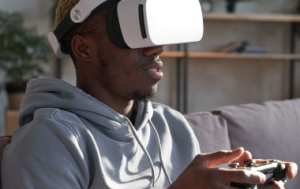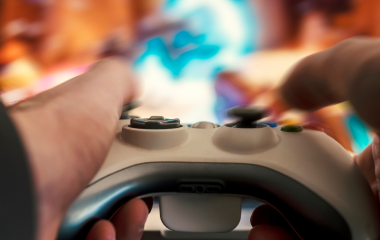

The debate on the effects of video gaming on our minds has been a longstanding one. While critics often focus on potential downsides, an increasing body of research suggests that gaming can indeed serve as a catalyst for enhancing various cognitive abilities. Far from being mere recreational activities, games can be brain boosters in disguise.
First and foremost, let’s address the realm of problem-solving and strategic planning. Games, especially titles within the puzzle and strategy genres, necessitate foresight, patience, and intricate problem-solving skills. For instance, titles like “Portal” or “Civilization” require players to anticipate several moves in advance, much like chess. Over time, engaging with such games can hone a player’s ability to think critically and approach real-life challenges with a strategic mindset.
Attention and focus are also significantly impacted by gaming. Fast-paced games, particularly those in the action and adventure segments, demand keen attention to detail. Players need to track movements, identify threats, and react swiftly to succeed. This heightened sense of awareness and focus, when cultivated over time, can translate to improved concentration levels in daily tasks.
Hand-eye coordination is another domain where gaming shines. Whether it’s accurately aiming in a first-person shooter or nailing a complex sequence in a rhythm game, the synchronization of visual input (what we see) with motor skills (how we respond) gets progressively sharper with gaming. This enhanced coordination has even been recognized in surgical simulations, where precision and timing are crucial.
Memory, both short-term and long-term, also benefits from gaming. Many games have intricate plots, diverse characters, and vast worlds. Players often need to remember key pieces of information, locations, character backgrounds, and more to progress. Such consistent engagement with complex narratives and environments aids in memory retention and recall.
Lastly, there’s the realm of multitasking. Modern games frequently bombard players with multiple objectives, challenges, and stimuli. Managing resources in a real-time strategy game, balancing offense and defense in a MOBA, or juggling multiple tasks in time-management titles—all these require effective multitasking, a skill that’s invaluable in our increasingly busy lives.
However, it’s essential to approach these benefits with balance in mind. Excessive gaming, like any activity taken to the extreme, can lead to adverse effects. The key is moderation and ensuring that gaming complements, rather than dominates, one’s lifestyle.
In conclusion, video games offer more than just entertainment. They are interactive challenges that stimulate the brain, sharpen cognitive functions, and foster a range of skills that can benefit players in myriad ways outside the virtual world.
Share this post



Your Portal to Gaming Adventure.
Where gaming is not just a hobby but a way of life